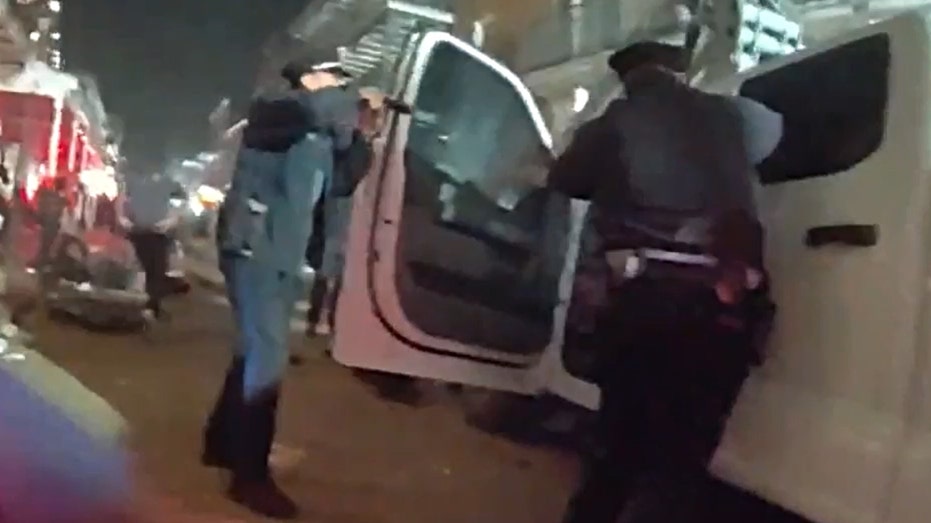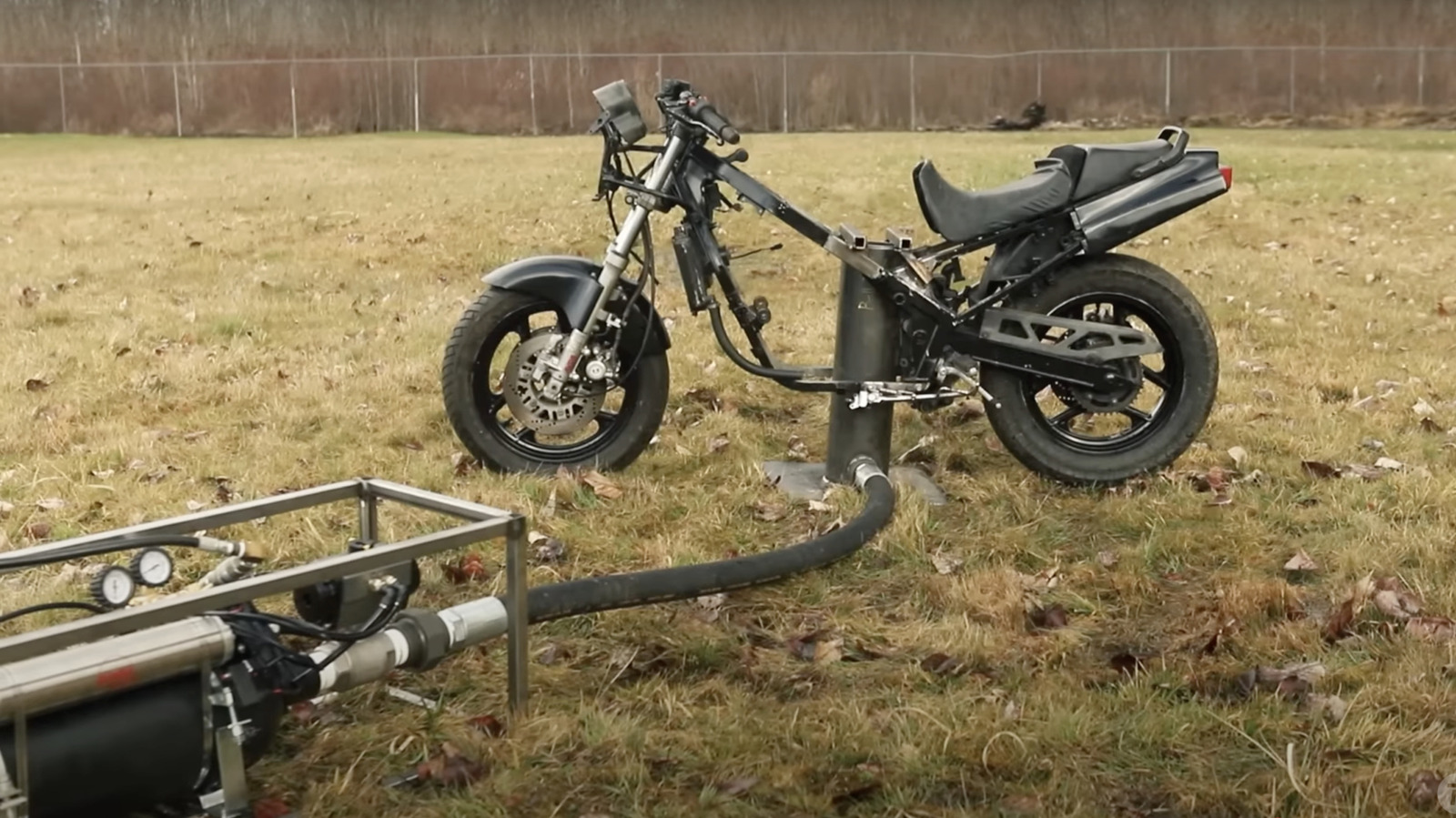Democrats Had a Shot at Protecting Journalists From Trump. They Blew It.
Senate Democrats had a legislative path to shield journalists and their sources from surveillance and subpoenas. They didn’t act. The post Democrats Had a Shot at Protecting Journalists From Trump. They Blew It. appeared first on The Intercept.

Attorney General Pam Bondi distributed plans inside the Justice Department last week to scrap rules protecting journalists and their sources from surveillance and subpoenas over unflattering coverage and leaks. Bondi’s memo leaked to the press immediately.
“This Justice Department will not tolerate unauthorized disclosures that undermine President Trump’s policies, victimize government agencies, and cause harm to the American people,” reads the memo, citing recent leaks to the New York Times, Washington Post, and Reuters as examples of the kind of reporting that would no longer be tolerated. “I have concluded that it is necessary to rescind [former attorney general] Merrick Garland’s policies precluding the Department of Justice from seeking records and compelling testimony from members of the news media in order to identify and punish the source of improper leaks.”
Eliminating these rules is the latest signal of a looming threat to reporters, who could face subpoenas and search warrants for daring to publish information that President Donald Trump would prefer kept secret. Journalists who resist legal demands to disclose their sources could face fines or even jail time.
But it didn’t have to be this way.
Long before Trump was reelected on promises to punish disfavored reporters and outlets, free press advocates warned that the rescinded Justice Department rules were an inadequate shield. The Biden DOJ last revised the rules in 2022 in light of revelations about the first Trump administration’s spying on journalists to smoke out leakers. Along the way, even as it offered its own leaks to friendly outlets, the first Trump DOJ routinely ignored prior versions of the rules, which are not enforceable in court.
Last year, Senate Democrats had a clear opportunity to make basic protections for journalists a matter of binding federal law, rather than mere policy that could be undone with a vendetta-laced memo. Following years of debate over the proper scope of a federal shield law for reporters, the PRESS Act unanimously passed the House of Representatives and had a bipartisan roster of Senate sponsors, including Republican Lindsay Graham of South Carolina.
Then Democratic leaders blew it.
For months, they let the PRESS Act sit in the Senate Judiciary committee without a hearing, even though that committee’s chair, Dick Durbin, D-Ill., was the bill’s co-sponsor.
After the election, Trump demanded that Republicans kill the bill. Chuck Schumer, D-N.Y., swore the PRESS Act was a top priority for his last weeks as Senate majority leader. But neither he nor Durbin put any apparent effort into moving the bill forward, either on its own or as part of must-pass legislation like the defense budget. They offered statements of reassurance and support for the press, but no action.
In mid-December, with time running out, Sen. Ron Wyden, D-Ore., the PRESS Act’s lead sponsor, tried to advance it himself, bringing the bill to the Senate floor on a motion to enact it by unanimous consent. A single Republican, Sen. Tom Cotton of Arkansas, blocked it with a grandstanding speech about the evils of leaks and “America-hating and fame-hungry journalists,” as he’d done with prior versions of the PRESS Act.
“Everyone predicted this would happen in a second Trump administration, yet politicians in a position to prevent it prioritized empty rhetoric over putting up a meaningful fight.”
Despite the predictable opposition, Senate Democrats had no strategic plan to counter it — other than a speech by Schumer — and the PRESS Act died at the end of the session. Durbin’s office blamed the PRESS Act’s failure on Cotton’s obstruction but did not answer why Durbin allowed the bill to stall in his committee. Durbin recently announced that he is retiring after more than four decades in Congress. Schumer’s office did not respond to The Intercept’s questions.
“Every Democrat who put the PRESS Act on the back burner when they had the opportunity to pass a bipartisan bill codifying journalist-source confidentiality should be ashamed,” said Seth Stern, director of advocacy for the Freedom of the Press Foundation, in a statement after Bondi’s memo came out.
“Everyone predicted this would happen in a second Trump administration, yet politicians in a position to prevent it prioritized empty rhetoric over putting up a meaningful fight.”
Barely three months in, the second Trump DOJ has already launched multiple investigations into reporters’ sources for embarrassing stories.
In March, Bondi’s deputy attorney general, Todd Blanche, announced a criminal inquiry over the leak of classified information to the Times about Tren de Aragua that contradicted many of the White House’s basic claims about the Venezuelan gang.
Last week, Director of National Intelligence Tulsi Gabbard announced that she had referred two leaks of classified information to DOJ for criminal investigation, including a “recent illegal leak to the Washington Post.” Earlier that day, the Post reported new details about Secretary of Defense Pete Hegseth’s use of the Signal app. Gabbard said a third leak referral was “on its way.”
Multiple agencies are forcing federal employees under suspicion of leaking to take polygraph tests, including the FBI and the Department of Homeland Security. Hegseth, who is obsessed with finding out who’s leaking details of his own terrible security practices, has also threatened to use lie detectors.
What procedural protections will remain for journalists as Bondi and her deputies prosecute these investigations is still unknown. Her memo was clear that the Biden-era rules were rescinded but light on details as to what might take their place. The memo referred to recent updates in the DOJ’s manual and federal regulations, but updated language has not yet been published and the DOJ did not respond to The Intercept’s request for copies.
Where the prior rules barred subpoenas against reporters except under narrow circumstances, Bondi’s memo emphasized the lack of clear legal protection for journalists against such subpoenas under Supreme Court precedent.
Trump “can and almost certainly will abuse the legal system to investigate and prosecute his critics and the journalists they talk to,” Stern said in his statement.
Such abuses can take many forms, including using subpoenas to obtain a reporter’s phone and email records, which the first Trump DOJ did for at least eight reporters at three national outlets: the Washington Post, CNN, and the New York Times. The Obama administration tried to force former New York Times reporter James Risen, who later joined The Intercept, to testify about his sources, but eventually dropped the effort.
According to Bondi’s memo, a subpoena for a reporter’s testimony, notes, or correspondence should be “an extraordinary measure to be deployed as a last resort,” narrowly drawn, and subject to “enhanced approval and advance-notice procedures,” which Bondi did not spell out. Any arrests of reporters would be subject to her personal go-ahead, as would requests to interrogate journalists.
“Trump is laying the groundwork to lock up reporters who don’t rat out their sources who expose crimes by his administration,” Wyden, the PRESS Act’s lead Senate sponsor, wrote on Bluesky after the Bondi memo came out. “I have a bipartisan bill that would make these protections ironclad. It passed the House unanimously (twice) and it was never taken up in the Senate.”
The post Democrats Had a Shot at Protecting Journalists From Trump. They Blew It. appeared first on The Intercept.










































































